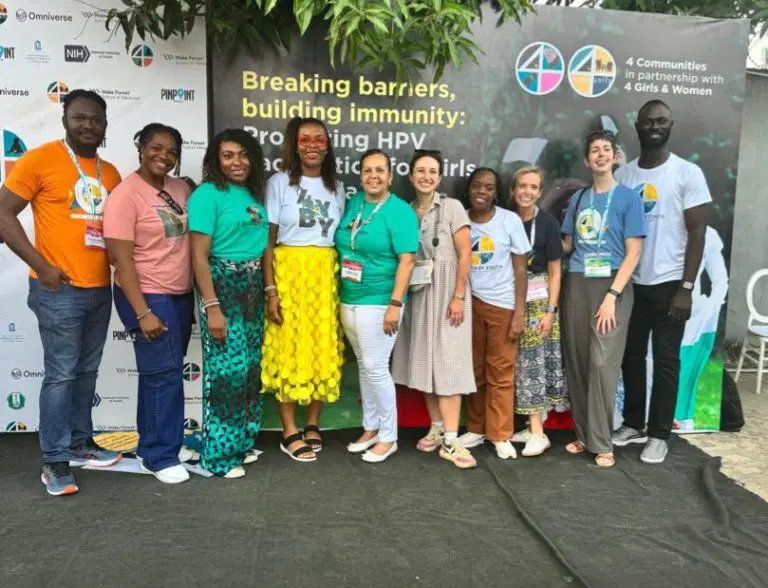Health
COVID-19: China donates 470,000 doses of vaccine to Nigeria

The Chinese Government on Friday donated 470,000 doses of COVID-19 vaccine to Nigeria.
The Chinese Ambassador to Nigeria, Mr CUI Jianchun, made the donation to the Nigerian Minister of Health, Dr Osagie Ehanire, in Abuja.
Jianchun said the gesture was as a result of the good relationship between Nigeria and China.
He noted that the efforts to eliminate the COVID-19 pandemic required the collaboration of all countries.
The ambassador, however, warned against politicising issues surrounding COVID-19 or blaming China for the outbreak.
Jianchun said there should be a collaborative effort to eliminate the disease.
“Nigeria is a very important country to China due to its population and size.
“COVID-19 is a health issue. We need cooperation. We need unity to overcome COVID-19,” Jianchun said.
He added that China would support Nigeria in vaccine production in the long run.
While responding, Ehanire, commended the Chinese government for the gesture, adding that the donation was timely.
The minister said that Nigeria stopped vaccination on July 8 due to lack of vaccines but with the donation, vaccination of citizens would resume in earnest.
Ehanire called for collaborations and exchange of information on ways to eliminate COVID-19.(NAN)
Health
We are committed to reducing maternal, child mortality — Mrs Tinubu tells Taraba monarchs

Nigeria’s First Lady, Senator Oluremi Tinubu, has reaffirmed the Federal Government’s commitment to reducing maternal and child mortality through improved health interventions and grassroots engagement.
Speaking during a meeting with traditional rulers in Jalingo, Taraba State, she emphasized the administration’s focus on strengthening healthcare—particularly among women and youth—by targeting preventable diseases and improving service delivery.
“We are here to encourage frontline health workers by providing incentives and recognizing their efforts,” Tinubu stated. “When well-supported, we believe maternal and infant mortality rates will decline significantly.”
She underscored the crucial role traditional institutions play in community mobilization, urging monarchs to help raise awareness of the Renewed Hope Initiative’s ongoing health programs.
The First Lady also drew attention to the need for action on HIV/AIDS, especially mother-to-child transmission, which she described as persistently high. “Treatment for HIV/AIDS and tuberculosis is available and free. We need to get this message to the people, and traditional leaders are key to that,” she added.
Coordinating Minister of Health, Prof. Ali Pate, echoed her sentiments, highlighting the government’s frontline healthcare efforts.
“In the North East alone, 8,500 frontline health workers have been trained—1,300 from Taraba. Over 1,000 health facilities receive quarterly funding from the Basic Healthcare Provision Fund, including 170 in Taraba,” he said.
Taraba State Governor, Dr. Agbu Kefas, and First Lady Agyin Kefas, commended the federal interventions and noted they align with the state’s developmental priorities.
As part of her visit, Mrs. Tinubu donated 10,000 professional kits to midwives across the six North East states and presented a ₦50 million cheque to empower 1,000 women in Taraba.
Health
Chewing Gum Releases Microplastics Into Mouth – Researchers
Researchers have discovered that chewing gum releases hundreds of tiny plastic fragments directly into the mouth, raising concerns about microplastic exposure.
A study by the University of California, Los Angeles (UCLA) found that a single gram of gum can release an average of 100 microplastic particles, with some brands shedding over 600.
Lead researcher Sanjay Mohanty emphasized that while no direct evidence links microplastics to health risks, the study highlights another way these tiny pollutants enter the body.
People who chew around 180 pieces of gum annually could ingest approximately 30,000 microplastic fragments. However, Mohanty noted that bottled water and other sources contribute significantly more to microplastic intake.
Health
International Women’s Day: Cervical cancer survivors share stories of resilience

As the world marks International Women’s Day, 4 Communities by Communities (4CbyC) is highlighting the resilience of women battling cervical cancer. Through personal narratives, the organization aims to raise awareness about the disease, stressing the importance of early detection, vaccination, and community-driven healthcare solutions.
For Ene, the impact of cervical cancer became deeply personal following the loss of her aunt, Evelyn, and the declining health of her mother. Living in Awo-Kajola, their family’s once-vibrant evenings were shattered by grief. Fearing a tragic pattern, Ene sought answers at the One-Stop Shop for Health, where she met a clinician, Funke.
Funke’s explanation changed everything: cervical cancer was not a curse but a preventable disease. Testing confirmed Ene’s worst fears—her mother had Stage 3 cervical cancer. However, hope remained. Funke assured Ene that she and her sister, Blessing, could receive the HPV vaccine, preventing future cases.
Similarly, Jennifer’s story underscores the urgency of awareness and healthcare access. Misdiagnosed for years, her cervical cancer advanced unchecked, and by the time she received proper care, it was too late. Financial constraints and limited healthcare resources delayed her treatment, leading to her passing in 2020.
To prevent more cases like Jennifer’s, organizations like the SaliHoe Foundation are stepping in, offering free cervical cancer screenings, vaccinations, and education. Campaigns such as “Know Her, Save Her” are using digital platforms to spread life-saving information, while FemmeHealth connects women with screening and treatment options.
Directors of 4CbyC—Prof. Juliet Iwelunmor, Prof. Joe Tuckler, and Prof. Oliver Ezechi—emphasize the need for continued advocacy, early detection, and accessible healthcare.
“The fight against cervical cancer is not just about health; it’s about breaking down the barriers of stigma, access, and education,” they said. “Through collective action, we can create a world where no woman dies from a preventable cancer.”














